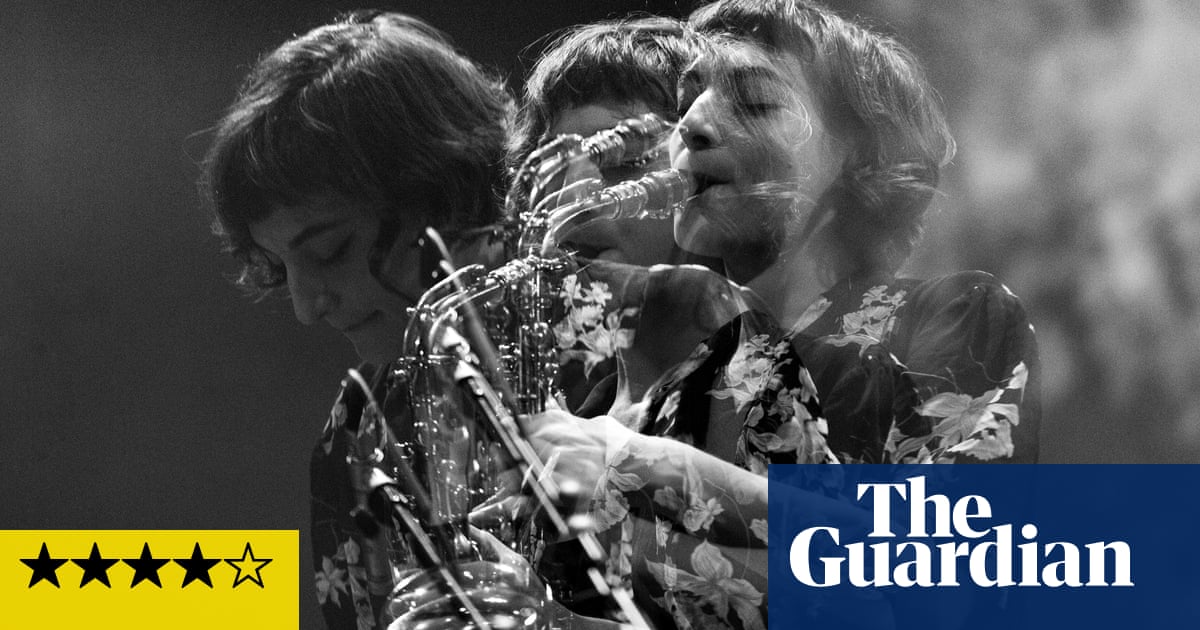
ohn McAuliffe is Irish but many of the poems in his sympathetic fifth collection are set in Manchester, where he teaches at university. One of the most involving of them is City of Trees, set on 22 May 2017 – the date gives you a clue to the content. It begins in the tone of a carefree journal, remembering a meeting at the town hall. From there, we briefly accompany the Irishman on a bicycle through Manchester, noting “the Curry Mile’s neon influence–/its last two Irish pubs, the Clarence/and the Whitworth refitted now as a Christian café/and a chrome-and-glass shisha bar.” What is striking about McAuliffe, in this poem and throughout the collection, is that he never over-edits life for the sake of poetry – he would cycle any distance, it seems, to avoid being loftily selective or unreliably sublime.
But one thing gives way to another and terror arrives without warning, turning up as suddenly in the poem as in life. Seeing the news of the arena bombings on television, he is alert to everything. The council leader is wearing “the same shirt/I’d seen him in twelve hours earlier” and the mayor is promising “‘business as usual’ – a not exactly steely line”. (McAuliffe’s sensitivity to language never goes off duty.) But it is further on that the poem comes into its own as he describes the footage of the bomber:
this watchful ex-student, born here, ill at ease,
walking through the May weeks of the trees’
slow green explosions, the air
thick with willow pollen and honeysuckle,
all invisible in the greyscale’s pixel
rendering of the place…
McAuliffe’s gift is to be mindful of elsewheres. He swerves to effect: his shrewd sideways and backwards glances count, pouring light on a subject from several directions simultaneously. Any given moment is likely to be underpinned by what went on before or what is to come. He knows the power of parallel universes. The willow pollen and honeysuckle are barely seen but should not be overlooked. They are irrelevant and crucial.
The moving title poem, The Kabul Olympics, is written in tribute to award-winning novelist Caroline Chisholm, who died of a brain tumour in her 40s. McAuliffe’s achievement is in making, as the best poems of this kind do, an afterlife for her.
The range and variety of this collection is considerable but McAuliffe is especially good – modest and self-deprecatingly amusing – on the home front. There is a wry poem about a losing battle against weeds, about failing to pitch a tent (Blown Away becomes a metaphor for the difficulty of hanging on in there) and a charming poem about a pair of vases, wedding presents. The poem starts as a still life but is not altogether still. One vase gets broken, while its neglected twin is spotted on a shelf:
This remaining vase coolly at home up there where it had
been forgotten,
a drink of air in its open mouth.
That last image is a good example of the clear wit of his style at its best.
It is hard to believe The Blackbird was not written during – and for – lockdown. And while I’m not sure I can visualise the “white internal door”, I appreciate the poem’s pleasing way of identifying the punctuation a blackbird brings to the repeated phrases of ordinary days.
• The Kabul Olympics by John McAuliffe is published by Gallery Press (€11.95-€18.50)
The Blackbird
The day’s white internal door
opens onto a kitchenful of what’s been before:
the kettle steaming up the radio; phone-chirps; clatter
of spoons; fridge hum; the order of things
surviving my wakeful night-time reckonings,
each hour hard to pin down as a handful of water,
each morning, each year echoing another I am slow
to recognize,
and then between the pips, there is
the air’s stillness into which a blackbird submits
the sweetest single high and overlaying sound a minute
admits,
rising away as I slope
out of the morning to the end of its ropey, going hope,
a creature of its mid-air qualms,
its clustered notes and afterthoughts and here-I-ams.











